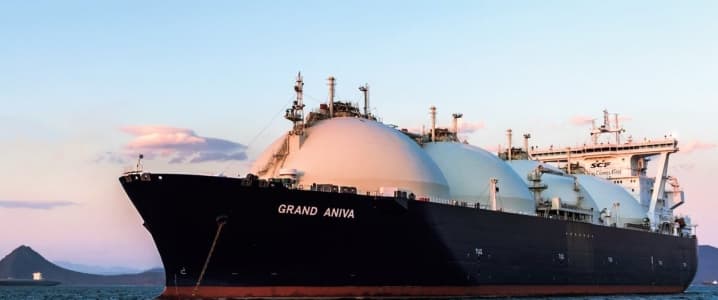Utilities in Japan, the world’s single largest importer of liquefied natural gas (LNG), are seeking price reviews in their short term LNG supply contracts as the Japanese energy market liberalization boosts competition and as Asian spot prices slump to their lowest in years.
Japanese LNG buyers are increasingly aggressive in the price reviews of their long-term supply contracts indexed to oil prices, analysts and lawyers tell Reuters.
In the wake of the Fukushima disaster when Japan shut down almost all of its nuclear reactors that used to provide around 30 percent of Japanese power supply, utilities had little choice but to sign long-term LNG supply contracts that are typically linked to the price of oil.
Some of those contracts have yet to take effect, while Japanese power providers are now finding themselves in quite different LNG and power generation markets than a few years ago, and even just one year ago.
Japan has restarted some of the reactors, and more nuclear capacity is set to return online over the next decade. Yet, the resource-poor country has boosted its LNG imports and consumption. But it has also liberalized its energy markets, meaning that utilities are competing against each other and for lower-cost power sources, as the old ‘pass the higher costs on to consumers’ strategy doesn’t work anymore in this more competitive market.
This gives one reason to Japan’s power providers to seek renegotiation of their long-term LNG supply deals.
The other key reason for intensified price reviews of LNG contracts is that this year’s depressed spot LNG prices in Asia are now half the price compared to the average price of the term contracts that Japanese utilities have signed, according to Japanese trade data and Reuters estimates.
The need to remain competitive in a liberalized energy market, especially in view of the much cheaper spot Asian LNG prices, emboldens Japan’s utilities to look to renegotiate their long-term LNG import prices.
Some utilities are said to have even resorted to arbitration after talks didn’t end in settlements. Related: Saudis Scramble To Arrest Oil Price Slide
Osaka Gas, for instance, is reportedly looking for price review arbitration against the PNG LNG venture led by ExxonMobil, Interfax reported last month, citing Australia-based energy specialist at Credit Suisse, Saul Kavonic. This is the first time a Japanese LNG buyer has resorted to arbitration, and the move could be a sign that utilities might be ready to be more aggressive in their efforts to cut long-term LNG import costs, Intefax says.
Even if Osaka Gas were to bring the price down in arbitration, it’s unlikely that the contract price would drop by more than 5 percent from the originally agreed price, a gas executive who has worked on many price reviews told Reuters.
While Japanese buyers are looking to review their long-term import prices, they are also looking to buy more spot LNG cargoes, considering that Asian spot prices have now slumped to more than a three-year low of US$4.10 per million British thermal units (MMBtu), and spot cargo deals have been made even at below US$4/MMBtu in the past weeks.
Still, the binding contracts for long-term LNG supply limit Japanese buyers from going all in on the spot market despite the very favorable prices right now.
Going forward, “Japanese buyers will continue to take a lead in contracting innovation with developments such as hybrid deals, coal indexation, joint procurement and carbon neutral cargoes,” Wood Mackenzie’s Senior Research Analyst Lucy Cullen said last week.
ADVERTISEMENT
“As several long-term contracts wind down from the early 2020s and with gas and power market liberalisation underway, this innovation will provide buyers more leverage and opportunities in future contracting discussions,” Cullen noted.
Japan will continue to import significant volumes of LNG in the coming years, but it is likely to lose its top buyer status to the current number-two—China—as early as 2022, WoodMac said last month, attributing an expected decline in Japanese imports to competition from coal, nuclear, and renewables, and to slow economic growth.
By Tsvetana Paraskova for Oilprice.com
More Top Reads From Oilprice.com:
- The Worst Is Still To Come In Energy Markets
- Big Oil Profits Lag Despite Rising Production
- EIA Lowers World Oil Demand Forecast Again


















